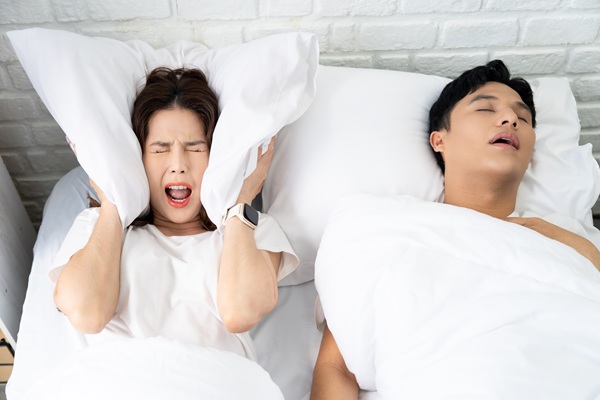Do Dental Appliances Work for Sleep Apnea?

If you have recently gotten a sleep apnea diagnosis, you will want to learn about the treatment options and how they work. CPAP devices are the most popular, but dental appliances are also a non-surgical option to consider. Continue reading to learn about the effectiveness of oral devices for sleep apnea treatment.
Dental appliances for sleep apnea
Dental appliances for treating sleep apnea are also called oral appliances, dental sleep devices or, more technically, Mandibular Advancement Devices (MAD) or Jaw Advancing Devices (JAD).
Nightguards are often mistaken for oral appliances. Although they may look like nightguards, the similarities are just that—the appearance. A night guard usually protects the teeth from the effects of grinding and clenching during sleep. A night guard cannot correct the underlying reason behind sleep apnea—a restricted airway.
How the appliances work
The aim of using a dental appliance to treat sleep apnea is to keep the airway open while sleeping. The device achieves this objective by preventing the tongue and jaw from collapsing into the airway during sleep. By stopping the obstruction of airflow, the dental appliance can stop snoring and sleep apnea. Oral appliance therapy is approved by the American Academy of Sleep Medicine for treating obstructive sleep apnea and snoring.
Most patients are comfortable wearing the sleep apnea oral appliance and adjust quickly to wearing it like a custom-fitted mouthguard when sleeping. The dental appliance is designed using precise specifications to meet individual requirements and achieve the patient’s desired results. With recent innovations in the technology used for producing oral appliances, it is now possible to use 3D printing to enhance fit, durability and comfort of each device for each patient.
The sleep appliance is convenient to wear and does not interrupt regular sleep. Using the device improves sleep quality, and patients often report waking up feeling more rested. Ultimately, there is a high satisfaction rate with dental appliances.
The benefits of using oral appliances
Although there is no specific therapy that is 100 percent effective for treating sleep apnea, dental appliances are an effective option for many people. There are some additional benefits of oral devices, including:
- Portability makes them easy to carry when traveling
- A noiseless operation allows for uninterrupted sleep
- No electricity needed to operate
- Comfortable for sleeping in any position
Dental sleep apnea treatment ensures a better quality of life, as well as a longer and healthier life. The dentist will perform a comprehensive evaluation to make a diagnosis and recommend the proper treatment for sleep apnea. Different dental devices are available nowadays, but only the appliances recommended and provided by the dentist have been proven over time to be effective.
In cases of severe sleep apnea, an oral appliance may not be advisable because it may not provide adequate support for the compromised air passage. In some cases, a dental device may be recommended to make wearing a CPAP machine more tolerable.
In summary
So, if you want to know if dental appliances work for sleep apnea, the answer is yes. A dentist can provide a device made specifically for you with the backing of the latest research and clinical techniques.
Request an appointment here: https://www.mypearldental.com or call Pearl Dental Group Specialty & General Dentistry at (760) 560-3169 for an appointment in our Vista office.
Check out what others are saying about our dental services on Yelp: Sleep Apnea in Vista, CA.
Related Posts
A dental crown is a common restoration that provides essential protection and structural support for damaged or weakened teeth. Over time, even the most durable dental crown can experience wear, misalignment, or develop issues that compromise your oral function and health. Here are five signs that indicate it is time to replace or refit a…
All-on-4 dental implants offer a streamlined alternative for patients seeking a full-arch tooth replacement. This approach uses just four implants per arch to support a complete set of prosthetic teeth, delivering both functional and aesthetic improvements. Patients exploring this solution should understand what sets it apart from traditional options and what to expect during and…
Choosing a kid-friendly dentist can make for a positive and comfortable start to a child’s oral health journey. A welcoming environment, experienced team, and tailored approach help make early dental visits feel relaxed and reassuring. The goal is to build trust so that children feel comfortable and even excited about oral health, which can lead…
Wisdom teeth extractions are a common dental procedure many individuals undergo in their late teens or early adulthood. These third molars lack room, causing them to emerge improperly or become impacted. This can lead to various oral health issues that affect your overall quality of life. Individuals who undergo this type of extraction should understand…
